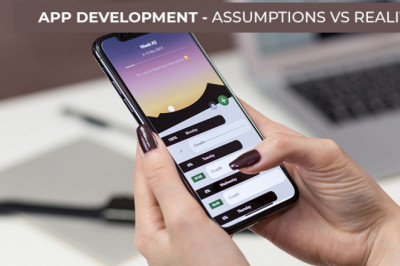views

"Potential for greatness is encoded in the genes, but the actualization of this greatness depends on the patterns etched by experience in those critical early years."
William Greenough - Neuroscientist, University of Illinois
Let's start with the importance of the first two years in the life of a child.
There is no argument that experience in the first two years of life profoundly affects later development. The experiences a child has during this sensitive period shape the very structure of the brain, affecting cognitive, linguistic, moral, social, emotional, and behavioral development. You might be surprised to learn that the first two years, but particularly, the first has a profound impact on a child's success in school and life, in general.
Why Are the Early Years Critical to Future Development?
To answer this question, let's start with a brief review of a baby's brain.
Brain Cells, Synapses, and Experience
The brain is made up of brain cells called neurons. Neurons connect through synapses that send electrochemical messages between them. With every experience -- every perception and activity – neurons fire, wiring new connections into neural networks. Repeated experiences strengthen these networks, facilitating future perceptions and actions.
A child's brain undergoes an amazing period of development from birth to two – the fastest rate of brain development in the entire human lifespan. In the first two years, the brain produces thousands of trillions of connections between neurons. Nearly three-quarters of these take place during the first two years of life!
This explosive growth happens for a reason: The newborn needs to quickly make sense of his surroundings, to learn and make meaning of his experiences. The first few years of life are critical in shaping personal, emotional, social, and cognitive development. They set the foundation of everything that follows.
Prenatal Brains
The prenatal brain starts with a single neuron. But during the next nine months, she grows so rapidly that, at birth, her brain contains about 85 billion neurons. While the fetus is still in the womb, approximately twenty-five thousand brain cells are produced each minute! Even though brain growth is unsurpassed during the prenatal period, only one-sixth of the brain develops before birth. It is difficult to imagine anything growing at the rate of the human brain during the early years.
Newborns
As you can see, once born, babies have a massive number of neurons -- all the neurons they will ever have! Why, you might ask, do babies have so many neurons? It turns out that they need this huge number of neurons because they need them to survive, adapt, and learn as much as they can about the world around them.
Though the number of neurons is important, it is not the whole story. When a baby perceives something, such as hearing mom's voice, neurons in the hearing part of their brain fire, releasing chemicals that cross the tiny gaps (synapses) between neighboring neurons. In this way, they send messages to each other, building networks of connections. Every time your baby experiences an event or performs an action, like grasping your finger, the affected areas of the brain fire together, creating more elaborate and complex neural networks. With repetition, the baby learns to grasp your finger better and faster and recognizes it as yours. We like to say that neurons that fire together wire together.
This simply means that with repetition, networks get "hard-wired," so to speak. The more your baby experiences things and plays with things, the more complex these networks become, enabling him to function in increasingly novel, varied, and elaborate ways.
Brain Growth Is Most Rapid During the Early Years
As we said earlier, in the early years, the brain grows faster than any other part of the body. That's why your baby's head is so much bigger than the rest of his body. Your brain weighs about 3.3 pounds, while your newborn's brain weighs only one-quarter of that, slightly less than a pound.
Yet, of the five-sixths of all connections that develop after birth, nearly three-quarters form during the first two years of life!
As you can see, the sheer gain in brain weight over the first five years is amazing:
- § By six months, your baby's brain weighs about half of what it will weigh when he becomes an adult;
- § By two years, it weighs three-quarters of what it will weigh in adulthood;And by five years, it achieves ninety percent of its adult weight

What is Brain Cell Connectivity?












